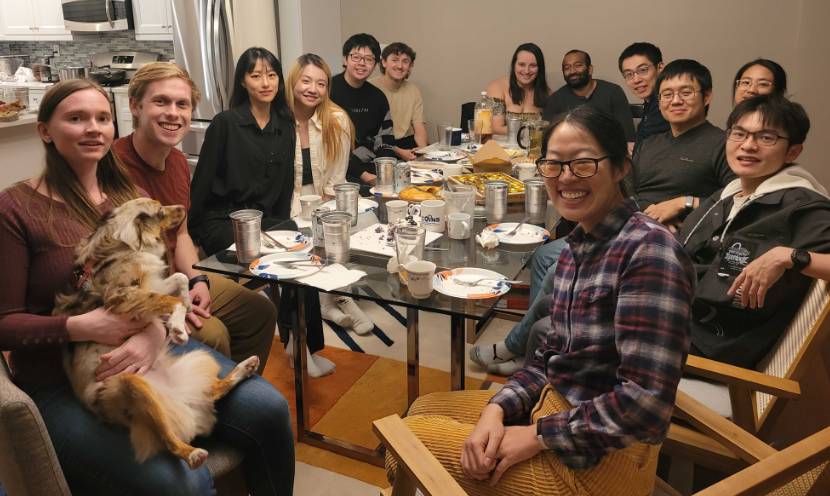Yale materials science professor receives presidential award
Professor Diana Qiu ’11 studies particle interactions at Yale.

Courtesy of Diana Qiu
Materials sciences professor Diana Qiu ’11 was recently awarded the Presidential Early Career Award for Scientists and Engineers from former President Joe Biden.
Qiu studies how light is absorbed by different materials, providing insight on creating solar energy and driving chemical reactions with sunlight. The PECASE award was given to nearly 400 scientists and engineers researching topics ranging from artificial intelligence to astrophysics.
“Our research is kind of a fundamental understanding of materials, where the materials themselves have applications in things like energy science, quantum information and electronics,” Qiu told the News.
In particular, Qiu and her team develop computational and theoretical tools to describe particle interactions.
At the microscopic level, Qiu said, different materials respond very differently to light, and it is important to notice these variations. The materials she and her team study could potentially be used in quantum computers or other electronics.
“A lot of these experiments rely on things like shining ultra fast, ultra short, intense pulses of light or at materials and seeing how they respond,” Qiu said.
Qiu was drawn to studying science from a young age, and she valued that if she entered academia, she could have a research lab and explore many different research ideas at the same time.
Though Qiu was interested in physics as an undergraduate at Yale, she also explored different subjects, including philosophy and comparative literature. Ultimately, though, she found her passion in condensed-matter physics, which explains how physics governs materials in a solid state.
“[What makes me excited about physics is that it] really gives you a very different picture of the way the universe works,” Qiu said. “It’s very counter to your everyday intuition.”
Qiu is part of the Energy Sciences Institute on West Campus, which she describes as a “great collaborative environment.”
At the Institute, she is able to work alongside other professors working in subjects related to energy and quantum materials, like professor Cong Su.
“Whenever I measure something, I usually go to Diana and ask for a solution, ask for her insight from a theoretical perspective,” Su said. “She might also be able to provide me with some calculation results which, for example, corroborate or explain what we’re seeing from the experiment.”
Qiu is also grateful for the postdoc and graduate students who have worked with her over the years and who continue to work with her.
Bowen Hou was Qiu’s first doctoral student, and he has been studying with her for three and a half years.
According to Hou, Qiu encourages the team to explore research they are interested in, which he appreciates.
“[You have the freedom] to explore more,” Hou said. “Not only our own area, but also some other area, like machine learning.”
Throughout his time working with her, Hou is grateful for the advice that Qiu has given him. In particular, when the issue is outside of her subject field, she is able to connect him with relevant researchers.
“The culture and atmosphere in the group is really great,” Hou said. “We have a collaborative atmosphere.”
Qiu hopes to continue to expand her research in new directions, including exploring transient materials, whose properties can change depending on the presence of light. However, in this subject, computational tools are only recently being developed.
This research is computationally heavy, and Qiu and her team are currently working on creating AI and machine learning tools to assist them.
PECASE was established in 1996 by then-President Bill Clinton LAW ’73.







